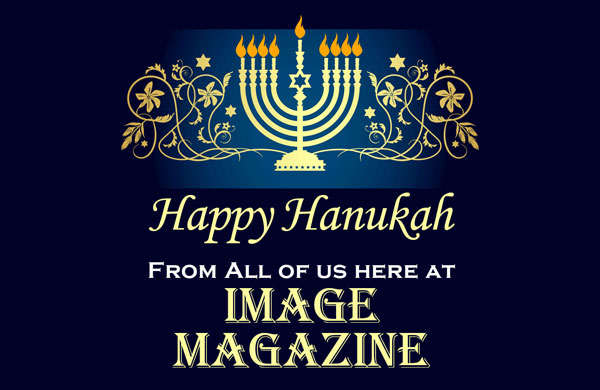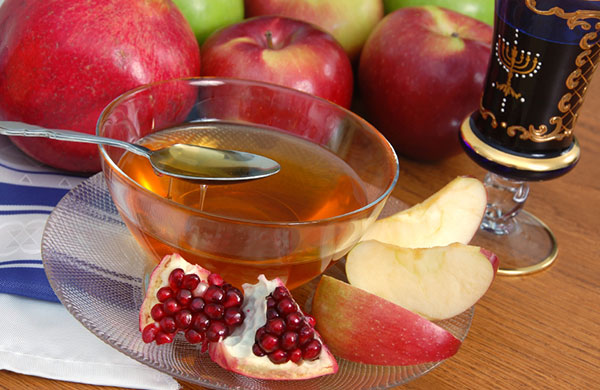 The eight-day festival of Passover is celebrated in the early spring, from the 15th through the 22nd of the Hebrew month of Nissan. It commemorates the emancipation of the Israelites from slavery in ancient Egypt and by following the rituals of Passover, we have the ability to relive and experience the true freedom that our ancestors gained.
The eight-day festival of Passover is celebrated in the early spring, from the 15th through the 22nd of the Hebrew month of Nissan. It commemorates the emancipation of the Israelites from slavery in ancient Egypt and by following the rituals of Passover, we have the ability to relive and experience the true freedom that our ancestors gained.
The Story in a Nutshell
After many decades of slavery to the Egyptian pharaohs, during which time the Israelites were subjected to backbreaking labor and unbearable horrors, G-d saw the people’s distress and sent Moses to Pharaoh with a message: “Send forth My people, so that they may serve Me.”
Despite numerous warnings, Pharaoh refused to heed G-d’s command. G-d then sent upon Egypt 10 devastating plagues, afflicting them and destroying everything from their livestock to their crops.
Pharaoh’s resistance was broken, and he virtually chased his former slaves out of the land. The Israelites left in such a hurry, in fact, that the bread they baked as provisions for the way did not have time to rise. Six hundred thousand adult males, plus many more women and children, left Egypt on that day, and began the trek to Mount Sinai and their birth as G-d’s chosen people.
The highlight of Passover is the Seder, observed on each of the first two nights of the holiday. The Seder is a fifteen-step family-oriented tradition and ritual-packed feast.
The focal points of the Seder are:
• Eating matza.
• Eating bitter herbs—to commemorate the bitter slavery endured by the Israelites.
• Drinking four cups of wine or grape juice—a royal drink to celebrate our newfound freedom.
• The recitation of the Haggadah, a liturgy that describes the story of the Exodus from Egypt. The Haggadah is the fulfillment of the biblical obligation to recount to our children the story of the Exodus on the night of Passover.
True Freedom
When G-d commanded Moses to bring the Jewish people out of Egypt, He proclaimed his ultimate purpose “That they shall serve G-d upon this mountain (Mount Sinai).” Our liberation was not complete until we received the Torah on Mount Sinai. G-d’s Torah and commandments are the key to achieving true freedom—freedom not just from physical enslavement, but from all our limiting beliefs and behavior. The Torah shows us how to avoid the pitfalls that life presents us, and teaches us how to make this world a place of peace, harmony and happiness for all humankind.
Matza and Chametz
 Pesach is known as the ‘Festival of Matzas.’ We are commanded to eat matza on the first night of Pesach and rid ourselves of chometz—all bread and leavened food products for the entire eight
Pesach is known as the ‘Festival of Matzas.’ We are commanded to eat matza on the first night of Pesach and rid ourselves of chometz—all bread and leavened food products for the entire eight
days of the holiday. This important commandment offers us great insight into the true nature of liberation.
The difference between leavened bread and matza is obvious: whereas bread rises, the Pesach matzas are not permitted to rise at all. Our rabbis explain that the ‘puffed up’ nature of chometz symbolizes the character trait of arrogance and conceit. The flat, unleavened matza represents utter humility.
Humility is the beginning of liberation, and the foundation of all spiritual growth. Only a person who can acknowledge his own shortcomings and submit to a higher wisdom can free himself from his own limitations. On Pesach, we are forbidden even the minutest amount of chometz. We should rid ourselves from the arrogance and self-centeredness from within our hearts.
By eating the Pesach matzas, we internalize the quality of humility and self-transcendence that is the essence of faith.
The Final Redemption
The eighth day of Pesach, which falls this year on April 2, is traditionally associated with our fervent hope for the coming of Moshiach. The Haftorah (Prophetic reading) for that day contains Isaiah’s famous prophecies about the Messianic era. Maimonides (the Rambam) cited the belief in Moshiach as one of the thirteen essential principles of our faith. He explains in his codification of Jewish Law that the Moshiach is a Torah Sage, who will lead the multitudes of Jewish people to the faithful observance of the Torah way of life. Eventually, he will rebuild the Holy Temple in Jerusalem, gather in the exiles to the land of Israel, and usher in an age in which there is no hunger, no war no jealousy or strife.
May we merit very soon to a time of true peace and security in Israel and around the world.
Wishing you and yours a happy Passover!
By Rabbi David Laine, director of Chabad Vocational schools.


